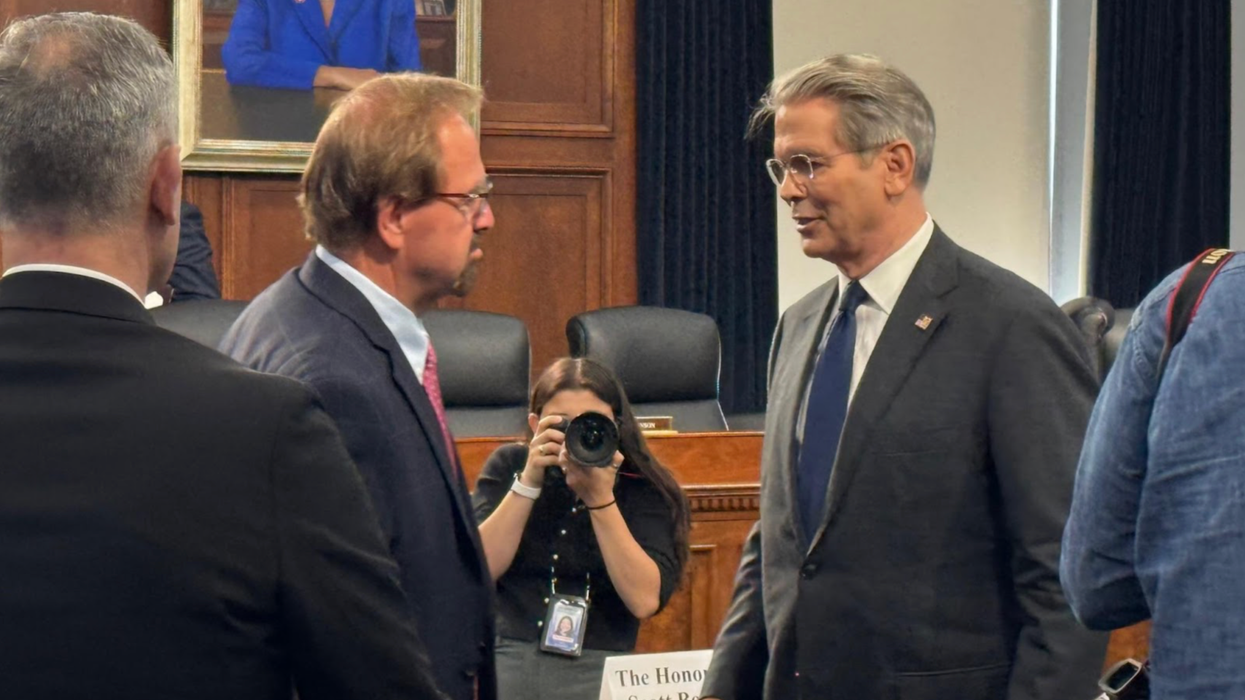WASHINGTON – Treasury Secretary Scott Bessent attempted to reassure Americans about the state of the U.S. economy, despite President Donald Trump’s major economic changes and the instability they have brought to the stock market.
“In the first 100 days of the new administration, we have set the table for a robust economy that allows Main Street to grow with Congress and the White House working hand in hand. We expect to see even more positive results over the next few months,” Bessent told the House Appropriations Committee last week.
However, in Trump’s first 100 days, the stock market dropped more than it did during the first 100 days of any former U.S. president since President Richard Nixon's second term in 1973. Additionally, U.S. Consumer Confidence, which measures U.S. optimism about the economy, dropped to the lowest it had been since the beginning of COVID in 2020.
Rep. Steny Hoyer, D-MD, blamed the president’s policies, particularly his reciprocal tariffs, for the economic troubles. Trump put the tariffs in place on April 2, and then, a week later, paused the tariffs for 90 days for all countries.
“Small business owners and farmers risk going under as they struggle to navigate ever-changing tariffs. Our economy is in chaos, and so I think, is our government,” said Hoyer.
However, Bessent emphasized that the purpose of the tariffs was to reduce trade deficits with 18 major trading partners. Bessent stated that the tariffs will help force these partners to sign better trade deals with the U.S. and that negotiations with all these countries, excluding China, are already underway.
“We are currently negotiating with 17 of those trading partners, so I expect that we can see a substantial reduction in the tariffs that we are being charged, “ said Bessent, prior to the announcement of a U.S.-U.K. deal.
Two days after the hearing on Thursday, the White House announced a new trade deal with the U.K. to give Americans billions of dollars of increased market access to U.K. markets for products like ethanol, beef, and other agricultural products.
Additionally, with Congress expected to vote on a bill that would make Trump’s 2025 tax cuts permanent, representatives on both sides of the aisle emphasized the need to reduce the national debt.
“We need to change course and get us out of the $36 trillion debt pathway,” said Rep. Michael Cloud, R-TX. “The American people have watched this all play out, realizing that their nation has been in decline.”
Secretary Bessent also warned that, without major changes, the U.S. debt could soon grow so large that it would no longer be sustainable.
“It would look like a sudden stop in the economy as the credit would disappear, as markets would lose confidence, and I’m committed to that not happening,” said Bessent.
However, the Center for American Progress, an independent policy institute, estimated that Trump's tax cuts would significantly raise the U.S. debt by reducing government-generated revenue.
Secretary Bessent said that even with the government-generated revenue being cut, the larger problem in reducing the national debt would be to control government spending. He credited DOGE and other Trump initiatives for playing a vital role in helping reduce government spending.
After the hearing, Rep. Hoyer sowed doubt on Congress's ability to reduce debt levels.
“It takes two parties [to reduce the national debt], and to date, the administration has not been willing to work with the other party,” said Hoyer.
Athan Yanos is a graduate student at Northwestern Medill in the Politics, Policy and Foreign Affairs specialization. He is a New York native. Prior to Medill, he graduated with an M.A. in Philosophy and Politics from the University of Edinburgh. He also hosts his own podcast dedicated to philosophy and international politics.





















